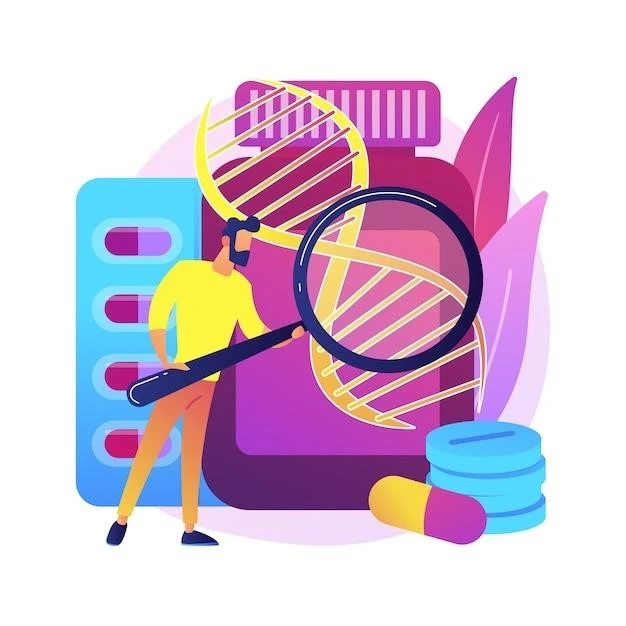Understanding Monosomy of Chromosome 7 involves a rare genetic condition where an individual is missing one copy of chromosome 7 in each cell․ This can lead to various developmental delays and health issues․
Symptoms of Chromosome 7 Monosomy
Individuals with Chromosome 7 Monosomy may experience a range of symptoms including developmental delays, intellectual disabilities, growth deficiencies, distinctive facial features, congenital heart defects, kidney abnormalities, hearing loss, vision problems, and skeletal anomalies․ Additionally, affected individuals may exhibit delayed speech and language development, feeding difficulties, seizures, and behavioral issues․ The severity and combination of symptoms can vary widely among individuals with this genetic condition․
Causes of Chromosome 7 Monosomy
Chromosome 7 Monosomy is typically caused by a random error during the formation of reproductive cells or early fetal development․ This results in the absence of one copy of chromosome 7 in each cell of the body․ In some cases, this genetic condition can be inherited if a parent carries a balanced translocation involving chromosome 7․ The loss of genetic material from chromosome 7 can disrupt normal development and lead to the characteristic symptoms associated with this monosomy․ Genetic counseling and testing may be recommended for individuals with a family history of chromosomal abnormalities or individuals who have had a child with Chromosome 7 Monosomy․
Diagnosis and Testing for Chromosome 7 Monosomy
Diagnosing Chromosome 7 Monosomy typically involves genetic testing such as chromosomal microarray analysis (CMA) or fluorescence in situ hybridization (FISH) to identify the deletion of genetic material on chromosome 7․ Prenatal testing through chorionic villus sampling (CVS) or amniocentesis can also detect this chromosomal abnormality before birth․ A thorough physical exam, developmental assessment, and imaging studies may be conducted to evaluate the presence of specific symptoms associated with Chromosome 7 Monosomy․ Early diagnosis is crucial for implementing appropriate medical interventions and support services to help manage the condition effectively․

Treatment Options for Chromosome 7 Monosomy
Management of Chromosome 7 Monosomy focuses on addressing individual symptoms and providing supportive care to enhance quality of life․ Treatment may involve a multidisciplinary approach including early intervention services, speech therapy, occupational therapy, physical therapy, special education programs, and medical interventions for specific health issues such as congenital heart defects․ Close monitoring by healthcare professionals is essential to address developmental delays, growth abnormalities, and any associated complications․ Genetic counseling and family support services can help caregivers navigate the challenges of caring for an individual with Chromosome 7 Monosomy․
Prognosis and Outlook for Chromosome 7 Monosomy
The prognosis for individuals with Chromosome 7 Monosomy varies depending on the severity of symptoms and the presence of associated health conditions․ While there is no cure for this genetic condition, early intervention and comprehensive management can improve outcomes and quality of life․ Some individuals may require ongoing medical support and therapeutic interventions to address developmental delays and health issues․ Regular follow-up appointments with healthcare providers are crucial to monitor progress, adjust treatment plans, and provide necessary support․ Research efforts continue to explore potential advancements in understanding and managing this rare chromosomal disorder․
Research Advances in Chromosome 7 Monosomy
Ongoing research in the field of Chromosome 7 Monosomy is focused on understanding the underlying genetic mechanisms that contribute to this condition, as well as exploring potential therapeutic targets․ Advances in genomic technologies have facilitated the identification of specific genes on chromosome 7 that may play a role in the development of associated symptoms․ Researchers are also investigating innovative treatment approaches to address the unique needs of individuals with this chromosomal abnormality․ Collaborative efforts among clinicians, geneticists, and scientists aim to further enhance our knowledge of Chromosome 7 Monosomy and pave the way for improved diagnostic tools and interventions․
Support and Resources for Chromosome 7 Monosomy
Individuals and families affected by Chromosome 7 Monosomy can benefit from a variety of supportive resources and services․ Support groups, online communities, and non-profit organizations dedicated to rare genetic disorders offer emotional support, information sharing, and networking opportunities․ Medical professionals specializing in genetic conditions can provide comprehensive care and guidance tailored to the specific needs of individuals with this chromosomal abnormality․ Educational resources, advocacy groups, and specialized programs can assist in navigating healthcare systems, accessing therapies, and connecting with relevant specialists․ It is essential to explore available resources to best support individuals living with Chromosome 7 Monosomy․
